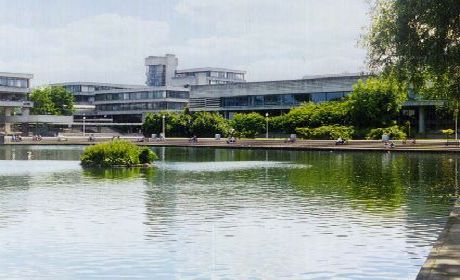MB and BCh MedicineAdd to shortlist
Programme profile
One of the strengths of the UCD undergraduate medical degree programme is patient-based teaching in small groups where our students learn the necessary skills under the tuition of highly qualified clinical tutors. We aim to enhance your experience by giving attention to student welfare and by adopting innovative teaching strategies and assessment methods.
The UCD teaching hospitals are leading, modern national medical centres that deliver the highest quality in patient care. The major general teaching hospitals are the Mater Misericordiae University Hospital and St Vincent
Programme content
During Stage 1, you will take modules in the basic sciences including Physics, Chemistry, Biology and Genetics. These subjects are taken alongside ethical, genetic and information technology modules pertinent to healthcare professions.
Stage 2: Modules in Stage 2 examine the anatomy, physiology and biochemistry of healthy cells, tissues and organ systems. Both semesters contain clinical modules that introduce students to patient care in community and hospital settings.
Stage 3 modules begin to review the pathology, microbiology and pharmacology of organ systems with a clinically integrated approach. Modules in Stage 4 complete the study of the diseased organ systems, culminating with clinical attachments in our expanding clinical training network.
In the final two years, modular programmes in Medicine, Surgery, Obstetrics and Gynaecology, Paediatrics, Psychiatry, General Practice, Community Medicine, Legal Medicine and Public Health Medicine are studied in rotation. This involves periods of clinical attachments in the general and specialist hospitals, attachment to a general practice and systematic instruction in the various medical specialties. Clinical tuition is patient-centred and is largely carried out through small group sessions at the bedside.
A clinical elective is offered and, in the three months prior to graduation, all students will take the Professional Completion module. This is an innovative and progressive module that assures your competence and confidence in advance of the internship year. The module includes intern-shadowing, emergency-skills training and an intensive review of medical practice that challenges you to apply what you have learned throughout the medical curriculum to patient care
Progression
Recognised by General Medical Council
Entry Requirements
Passes in 6 recognised subjects with at least two subjects at Grade C or better in GCE A-Levels or equivalent, and at least four subjects at Grade C or better in GCE O-Levels or equivalent.
Subjects to include Biology or Chemistry or Physics at A Level.Other subjects to include Maths, English and another language, at a minimum GCSE C
Student are exempted Foundation Year, if they have Biology, Chemistry and Physics at A-Level
730
Yes: HPAT
No
No
Leaving Cert/A-Levels/IB scores will be converted into points. Your adjusted score for these exams plus your HPAT score will be added.
05 November
01 February

 Join us on Facebook
Join us on Facebook